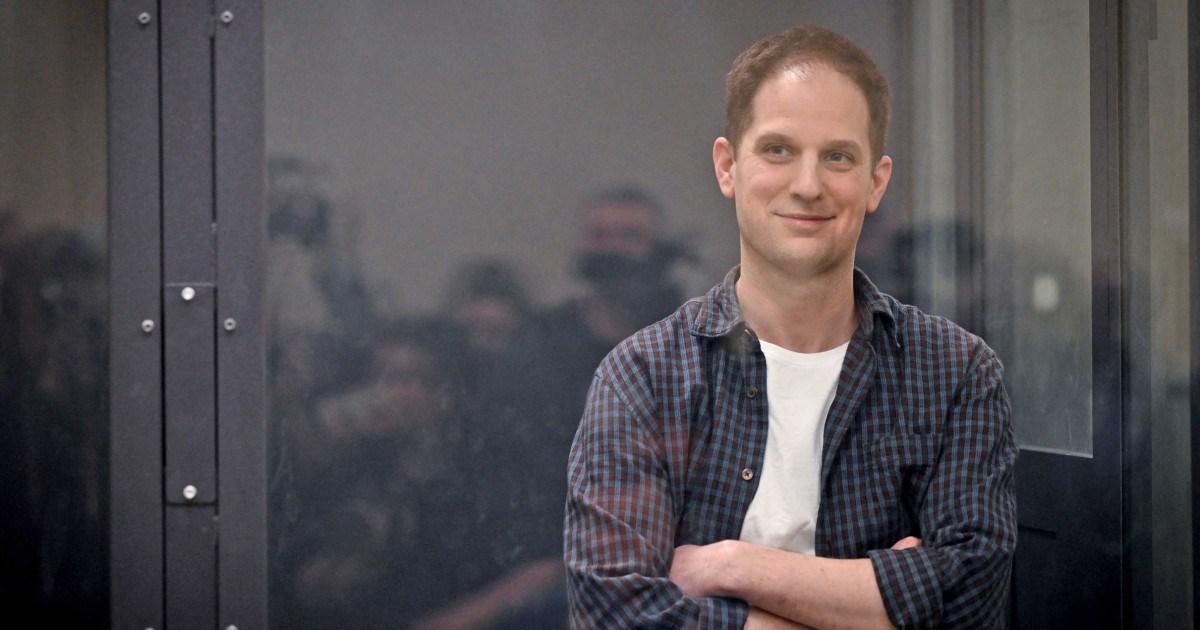The patriotic, perhaps most human, reaction to Thursday’s release of multiple Americans held hostage in Russia — including journalist Evan Gershkovich and security contractor Paul Whelan — is to welcome them home with open arms and take a moment to appreciate that the U.S. government is willing to go to bat for its people when they travel abroad.
Unfortunately, that simple axiom hides a tricky calculus of how countries often effectively kidnap people under false pretenses to gain an advantage in the game of geopolitical chess. Countries like China, Iran, North Korea and Russia often use a tactic once reserved for militants and revolutionary groups: scooping people up and using them as political bargaining chips. When hostages were taken by Al Qaeda in Pakistan or the FARC in Peru, the U.S. government was also able to work with and pressure local governments to bring Americans home safely.
As Thursday’s prisoner swap indicates, things have shifted in more recent years — rogue governments themselves see an advantage in violating diplomatic norms of goodwill to visitors.
Countries often effectively kidnap people under false pretenses to gain an advantage in the game of geopolitical chess.
Regimes like Russia’s will grant visas to Americans and then levy charges to turn them into prisoners, with the expectation they will gain concessions for their release. Journalists, like Gershkovich, who are shedding light on the realities of life in those countries, are brought up on charges of espionage. Athletes like Brittney Griner, who played basketball professionally in Russia for more than a decade, was detained on drug trafficking charges and sentenced well beyond the usual time for marijuana possession.

According to the James Foley Foundation, this wrongful detention trend reached a height in 2022; currently more than 40 Americans are still wrongly detained for an average of five years, the majority of them in China and Russia.
As legal prisoners of a foreign government, these Americans can’t be rescued by a stealth SEAL team; they must go through a court process and country-to-country negotiations for even the possibility of a prisoner exchange. To further complicate matters, many held in these foreign legal systems are dual nationals who are also subject to the laws of both countries. Until the court case is resolved, U.S. lawyers and diplomats can’t intervene without being accused of violating the authority and sovereignty of the host country. Even getting the U.S. secretary of state to make a formal declaration of wrongful detention is a secretive process, something families of detained people have decried for years.
The unfortunate truth is the American system doesn’t have a good answer for what to do about bad actors’ being incentivized to use people as political pawns. But the U.S. government can at least do right by the families of people held in unjust foreign captivity by being more transparent and declassifying information about their loved ones’ captivity.
More broadly, in moments when our adversaries try to use our people and values against us, the U.S. government shouldn’t hesitate to double down on what makes us distinct from these autocratic regimes — standing up for individual rights and protecting our people abroad.

Leave a Reply